- Home
- Parnell Hall
Presumed Puzzled Page 8
Presumed Puzzled Read online
Page 8
“That’s right.”
“You base that on the body temperature?”
“For one thing. Also lack of rigor mortis. Skin tone. Coagulation of blood.”
“Could it have been longer than an hour?”
“I don’t think so. It’s not impossible, but it isn’t likely. I examined the body very shortly after death. Probably a half an hour. An hour is a reasonable parameter, but I can’t give you an ironclad guarantee.”
“Thank you, Doctor. That’s a very good answer. I would be inclined to trust your judgment.” Becky changed her tack. “I believe you found no defensive wounds?”
“That’s right.”
“Neither of the hands were cut?”
“No, they were not.”
“Is that unusual?”
“I would say so. With so many lacerations to the chest and belly, you would expect to find at least some on the hands and arms.”
“A lack of defensive wounds would tend to indicate the decedent did not put up his hands to try to block the fatal blows?”
“That’s right,” Dr. Nathan said warily. Becky’s questions seemed to indicate she was agreeing with everything he said; still, after her previous examination, he couldn’t help feeling suspicious he was being led down a garden path.
“That’s interesting. Tell me, Doctor, did you look for any contributing cause of death?”
“Contributing?”
“Aside from the lacerations to the chest. From your testimony the lacerations clearly caused death. I’m wondering if you found anything else.”
“No, I did not.”
“Did you test for drugs?”
“Yes, I did.”
“What were you looking for?”
“I wasn’t looking for anything. I was just being thorough.”
“Did you find any drugs present in the body?”
“Nothing significant.”
“Nothing significant?”
“No.”
“Did you find anything insignificant?”
“I found the trace of a sedative.”
“A trace?”
“Yes.”
“How much of a trace?”
“Not enough to be significant. It showed that the decedent had taken a sedative that had time to wear out of his system. Perhaps the day before.”
“Which sedative?”
“Ativan.”
“Ah. I see. For the benefit of those jurors not on Ativan, how strong is it?”
“Well, it’s not a neuroleptic. It’s an anti-anxiety drug. A tranquilizer.”
“It would calm a person down?”
“Yes, it would.”
“Tell me, Doctor, were you Mr. Martindale’s physician in his lifetime?”
“Yes, I was.”
“Did he have a prescription for Ativan?”
“Not that I know of.”
“You never wrote him one?”
“No, I did not.”
“Interesting. And in addition to the Ativan, did you find a trace of any other drug?”
“No, I did not.”
“How about alcohol? Was there alcohol in his system?”
“Yes, there was.”
“Oh, really? How much?”
“The blood alcohol content was point-oh-nine.”
“Point-oh-nine?”
“Yes.”
“Correct me if I’m wrong, Doctor, but isn’t point-oh-eight considered legally drunk?”
“I believe so, yes.”
“His blood alcohol content was greater than that?”
“Yes.”
“So Roger Martindale was legally drunk when he was killed?”
“Yes, he was.”
“But you didn’t think this was particularly important.”
“I beg your pardon?”
“You didn’t mention it on direct examination.”
“I wasn’t asked.”
“No, you weren’t. Did you know you weren’t going to be asked?”
“Objection, Your Honor. How is that possibly relevant?”
“Rephrase the question,” Judge Hobbs said.
“Were you told by the prosecutor not to mention the blood alcohol level in the victim unless specifically asked about it by the defense?”
“Objection, Your Honor. How is what I may or may not have told this witness possibly relevant?”
“I would tend to agree, Ms. Baldwin.”
“Yes, Your Honor. But if the witness acted on that suggestion, if he deliberately withheld certain facts from his testimony, if there was in his own mind the intention not to mention something because the prosecutor had told him that he shouldn’t, that would certainly be an indication of his bias, and I would have every right to bring it out.”
Judge Hobbs sighed. “Yes, you would. Objection overruled.”
“No,” Dr. Nathan said. “I didn’t intend to mention it.”
“Uh huh. And was there anything else you deliberately withheld from your testimony at the suggestion of the prosecutor?”
Henry Firth nearly knocked over his chair, leaping up to object.
Becky suppressed a smile.
It occurred to her she had pretty well ensured that Dr. Barney Nathan would never ask her out to dinner again.
Chapter
24
Sherry picked Jennifer up at preschool with mixed emotions. At one time Sherry had taught preschool. She loved it, but she loved being a mother more. Still, seeing the children playing together in the schoolroom always spurred a tinge of regret.
Jennifer was stacking blocks. She spotted Sherry and sprang up with an excited whoop, knocking the blocks over. “Mommy! Mommy! Mommy!” she cried, ran across the room, and leapt into Sherry’s arms.
“How was school?” Sherry said.
“Fine.” It was what she always said.
“She had a great day,” Alice said. Alice was one of the older teachers, had been there in Sherry’s day. The other teacher, Louise, was the third replacement since she’d left. They didn’t seem to stick.
“I made a picture!” Jennifer announced.
“She did finger painting,” Alice said. “Occasionally on the paper, but mostly on her classmates.”
Sherry had noticed splotches of color on some of the children. Parents were encouraged to send their kids in clothes that could take a beating.
“It would appear that a bath is in order,” Sherry said.
“No bath!” Jennifer said, and laughed hysterically.
“I didn’t hear you,” Sherry said. “Did you say that you want a bath?”
“No bath!”
“I’m going to have to tickle you until you say ‘bath.’ Do you want a bath?”
Jennifer giggled. “No bath!”
Alice waved at Sherry and Jennifer as they giggled and “no bath”ed out the door.
Jennifer climbed into the front seat. “I’m a big girl. I don’t need a car seat.”
“No, you need a bath.”
“No bath!”
“What do you want, a bath or a car seat?”
“No bath!”
“Ah, you want a car seat.”
“No car seat!”
“Put on your seatbelt and we’ll talk about it.”
Jennifer snapped on her seatbelt and Sherry drove home.
“All right,” Sherry said. “Run upstairs and turn the water on.”
Jennifer ran into the bathroom. Sherry followed, heard the water running in the sink. The water was shut off. Jennifer came out and presented her hands. Most of the yellow and some of the blue had been washed off. Sherry wondered whether more of it was in the sink or on the towel.
The toy poodle, roused from his nap, came scooting around the corner.
“Buddy!” Jennifer squealed, and she and the dog charged down the stairs and bayed through the breezeway.
Sherry caught up with them, as usual, in the living room in the old end of the house. It occurred to her that any remaining finger paint would be a contribu
tion to Cora’s quarters and not hers. That was all right. Cora had never once complained about Jennifer-and-Buddy damage.
Sherry left the two of them destroying the living room and went in the kitchen to rustle up something for lunch. Aside from the chicken they were having for dinner, there was very little in the refrigerator. Sherry really did need to do some shopping. She found a can of vegetable soup and a box of macaroni.
The next time Jennifer and Buddy swooped through the living room, Sherry stuck her head in and said, “Soup or macaroni?”
“Macaroni!” Jennifer squealed. Buddy seemed in agreement, and off they went.
Sherry put water on. While she waited for it to boil, she went down the hall to check the email on Cora’s computer. Cora handled some of the Puzzle Lady mail herself, but technical questions regarding puzzles, Sherry had to answer. There was none. Only fan letters of the folksy sort Cora could knock off in her sleep.
Sherry went back in the kitchen, where the water was boiling. She dumped in the macaroni, set the timer to beep in seven minutes.
It occurred to her she had some work to do for the crossword column. Sherry did most of her constructing on the computer upstairs, but she spent so much time in Cora’s end of the house that she had installed a version of “Crossword Compiler” on Cora’s machine. She went back in the office, clicked on the icon, and opened the program.
Sherry was about to set up a grid to work on when she noticed there was a puzzle saved she didn’t recall constructing. She frowned at the screen. She didn’t recall it at all. Had Cora constructed a puzzle? Sherry wasn’t aware of hell freezing over lately, but not only did she not recall the puzzle, some of the clues were ones she would never use.
Rather than clicking to the solution grid, Sherry printed the puzzle. If this was indeed Cora’s puzzle, Sherry wanted to check it by solving it.
The timer beeped. Sherry got up, went in the kitchen, drained the macaroni, added cheese and butter, and stirred the mixture into the most wicked child trap imaginable.
She stuck her head out the kitchen door, yelled, “Come and get it!”
An explosion of little feet heralded the arrival of child and dog. A funfest erupted, with macaroni flying in so many directions it would be difficult to tell who had actually eaten more.
Sherry watched in amusement, any thought of Cora’s crossword long gone.
Chapter
25
After lunch the desk clerk took the stand, identified himself as Harold Brown, and testified that he had worked at the hotel on 57th Street for the last four years.
“Did the decedent, Roger Martindale, ever stay at your hotel?” Henry Firth asked.
“Yes, he did.”
“How do you know?”
“I checked him in.”
“Personally?”
“Yes.”
“How do you know it was him?”
“I recognized him from his picture.”
“Do you have the registration book with you?”
“The registration is electronic. I printed out a copy to refer to.”
“I ask that the registration printout be marked for identification.”
“No objection to marking it for identification, Your Honor,” Becky said. “I reserve the right to object to the printout itself as not being the best evidence.”
“So ordered,” Judge Hobbs said.
The court clerk marked the exhibit.
Henry Firth handed it back to the witness. “Now, Mr. Brown, can you tell me how many times did the decedent stay at your hotel?”
“According to the registration, Roger Martindale checked in six times during the two months before he was killed. On four of those occasions I checked him in myself. Two of the times another clerk was on duty.”
“And on the times you checked him in, how long did he stay?”
“He registered for one night.”
“And did he stay the night?”
“Objection, Your Honor. How would he know where the decedent spent the night?”
“Could you rephrase the question, Mr. Firth?”
“On the occasions when you registered the decedent, did he check out the same day?”
“Yes, he did.”
“How long after he registered did he check out?”
“Between one and two hours.”
Henry Firth smiled, spread his arms, and shrugged at the jury, inviting them to share his amusement at how easily he’d gotten around Becky’s feeble objection. “Thank you, Mr. Brown. No further questions.”
Becky was on her feet. “You say you recognized the decedent when he checked in?” she said breezily.
“That’s right.”
“Do you recall being questioned in your hotel by Sergeant Crowley of the NYPD in the company of Miss Cora Felton, the Puzzle Lady? I’m sure you do, because you recognized her from television and greeted her effusively. Do you recall that?”
“Yes, I do.”
“And Miss Felton showed you a photo of Roger Martindale and asked if he was the man who rented the room and you had no idea. Do you recall that?”
“Yes, but that was before I had a chance to think about it.”
“And to see his picture in the papers?”
“Your Honor, that’s not a question, it’s an argument,” Henry Firth said.
“I’ll withdraw it,” Becky said. “At any rate, you now recognize Roger Martindale as the man who checked in?”
“That’s right.”
“Did you recognize him when he checked out?”
“I beg your pardon?”
“You remember him checking in. Do you remember him checking out?”
“I don’t understand the question.”
“You say he checked out after one to two hours. Did he come up to the desk, say, ‘Hi, I’m checking out, here’s my room key, could I have my bill’?”
“Oh.”
“Did he do that?”
“I don’t remember.”
“I didn’t think you did. Tell me, Mr. Brown, is it possible to check out without going to the front desk?”
“Of course. You can check out electronically and leave your keys in the room.”
“And if Roger Martindale had done that, you wouldn’t see him leave.”
“No.”
“So when you say Roger Martindale checked out, all you really know is that, according to your computer, someone electronically checked out of the room.”
“That’s right.”
“Tell me, Mr. Brown: Is it possible to check out electronically and stay?”
“Huh?”
“Well, you don’t surrender your key. You can pretty much do as you please. The worst that can happen is you tell a chambermaid, ‘No, no, I’m still here,’ and she’s got other rooms to do, she’s not apt to argue with you.”
The witness, discombobulated, thought that over. “I suppose.”
“Thank you, Mr. Brown. No further questions.”
“Any redirect?” Judge Hobbs said.
At the prosecution table, Henry Firth conferred with his trial deputy, obviously over whether to try to repair the damage. He decided not to.
“No, Your Honor. I call Bob Krantz.”
The replacement clerk took the stand.
“Your Honor, the witness is someone deaf, so forgive me if I raise my voice.”
“We will make allowances,” Judge Hobbs said.
In response to some rather loud questions, Bob Krantz testified to the fact he was a part-time clerk at the 57th Street hotel.
“And did you ever see the decedent?”
“Yes, I did.”
“Where did you see him?”
“He checked into the hotel on two occasions.”
“Are you sure it was him?”
“I never forget a face.”
“And did you see him check out again?”
“Yes, I did.”
“After how long?”
“The first time, I’m not sure. The second ti
me was an hour and a half.”
“Did he come up to the desk and check out?”
“No, he did not.”
“Then how do you know he did?”
“I saw him leave.”
“And how do you know what time it was?”
“The first time he left it wasn’t till later I realized he’d checked out, so I can’t tell you exactly what time it was. But I knew he’d only been there a short time. So the second time he checked in, I paid attention. When I saw him leave, I checked the register, saw he’d already checked out. It was an hour and thirty-five minutes after he’d checked in.”
“Why did you do that?”
“It’s my job.”
Henry Firth smiled at Becky Baldwin. “Your witness.”
“Thank you,” Becky said, much too politely. “Mr. Krantz, did Roger Martindale have a woman with him when he checked in?”
“No, he did not.”
“Did any woman ask for him at the desk?”
“No, they did not.”
“So all you really know is the time he checked in and the time he checked out. You don’t know what he was doing in that room. In fact, you don’t even know he was in that room at all. For all you know, he could have checked in, sat in the hotel bar for an hour and a half, and checked out.”
“That would be a damn fool way to spend your money.”
“But he could have done it. You have no idea.”
“No, ma’am, I don’t.”
“Thank you. No further questions.”
Henry Firth stood up. “Mr. Krantz, you say you don’t know if any woman went up to Roger Martindale’s room?”
“That’s right, I don’t.”
“During that hour and a half he was there, could one have done so?”
“Sure.”
“How could they have done that?”
“They could have been staying in another room. Or they could have walked into the hotel and gone straight to the elevator. I’m only on the desk one day a week. I don’t know who checks in when I’m not there. If someone comes in I didn’t check in, I don’t recognize ’em.”
“You didn’t recognize anyone then?”
Bob Krantz cocked his head. “Not at the time, no.”
A cold chill ran down Cora Felton’s spine. She bit her lip. She should have seen this coming.
“Do you recognize anyone now?”
“Yes, I do.”
“You recognize someone here in court who was in that hotel during that hour and a half when the decedent was in that hotel?”

 Clicker Training
Clicker Training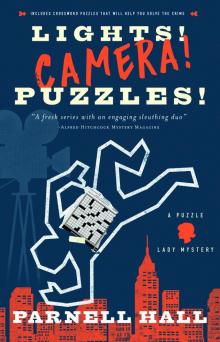 Lights! Camera! Puzzles!
Lights! Camera! Puzzles!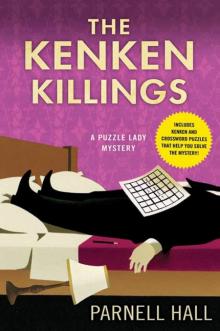 The KenKen Killings
The KenKen Killings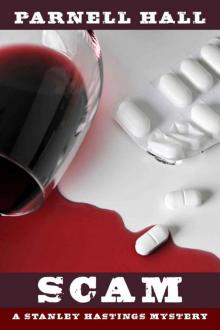 12-Scam
12-Scam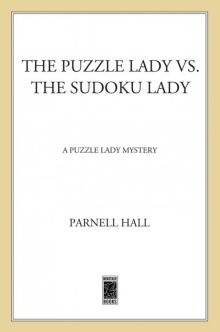 The Puzzle Lady vs. the Sudoku Lady
The Puzzle Lady vs. the Sudoku Lady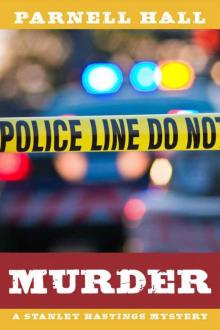 2 Murder
2 Murder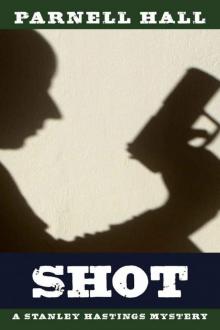 7 Shot
7 Shot You Have the Right to Remain Puzzled
You Have the Right to Remain Puzzled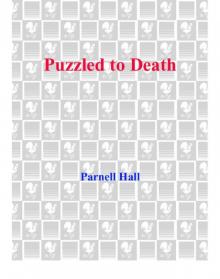 Puzzled to Death
Puzzled to Death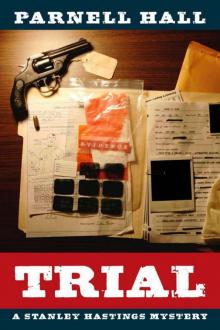 11-Trial
11-Trial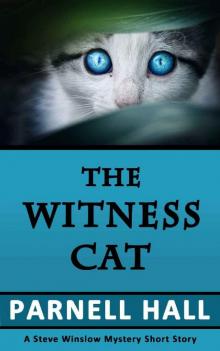 The Witness Cat (Steve Winslow Mystery)
The Witness Cat (Steve Winslow Mystery) With This Puzzle, I Thee Kill
With This Puzzle, I Thee Kill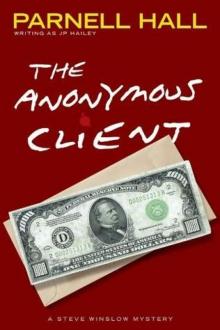 The Anonymous Client sw-2
The Anonymous Client sw-2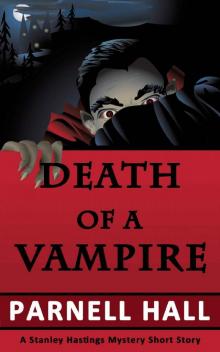 Death of a Vampire (Stanley Hastings Mystery, A Short Story)
Death of a Vampire (Stanley Hastings Mystery, A Short Story)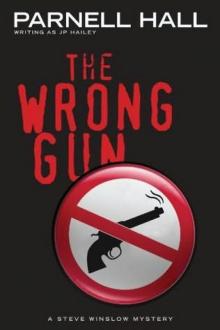 The Wrong Gun sw-5
The Wrong Gun sw-5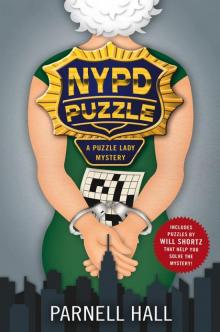 NYPD Puzzle
NYPD Puzzle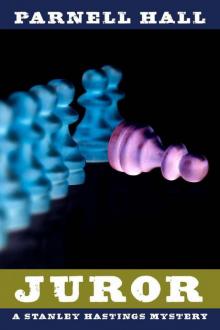 6 Juror
6 Juror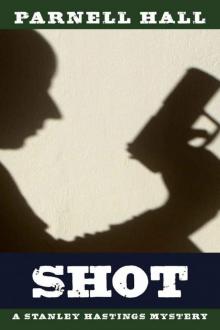 07-Shot
07-Shot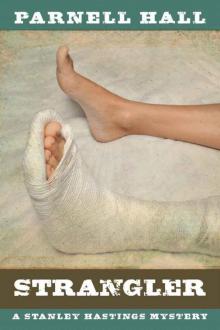 04-Strangler
04-Strangler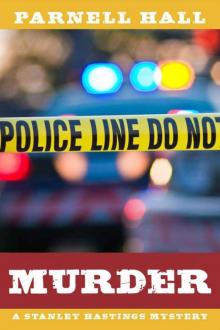 02-Murder
02-Murder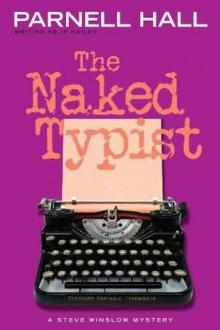 SW04 - The Naked Typist
SW04 - The Naked Typist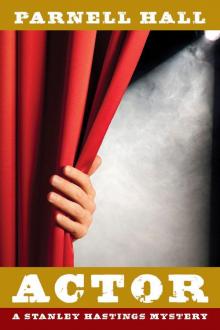 Actor
Actor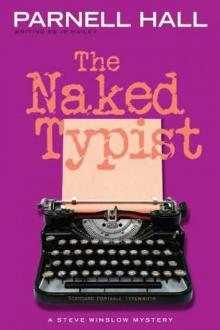 The Naked Typist sw-4
The Naked Typist sw-4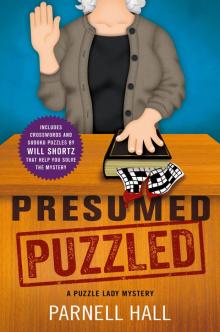 Presumed Puzzled
Presumed Puzzled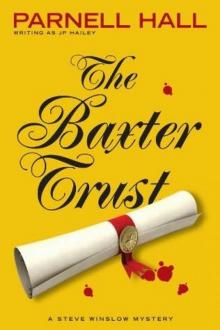 SW01 - The Baxter Trust
SW01 - The Baxter Trust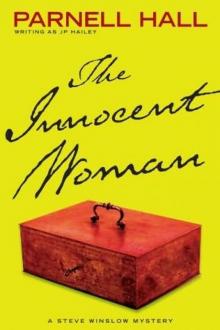 SW06 - The Innocent Woman
SW06 - The Innocent Woman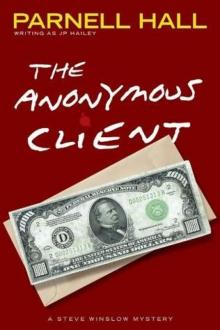 SW02 - The Anonymous Client
SW02 - The Anonymous Client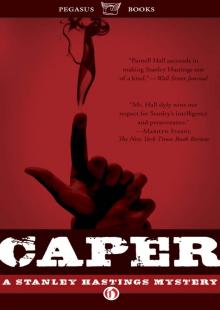 Caper
Caper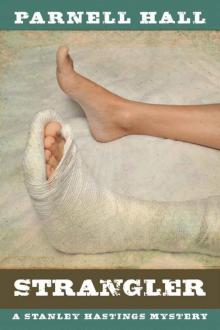 4 Strangler
4 Strangler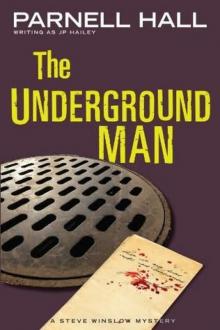 The Underground Man sw-3
The Underground Man sw-3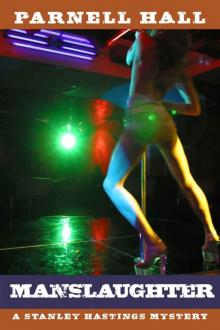 Manslaughter (Stanley Hastings Mystery, #15)
Manslaughter (Stanley Hastings Mystery, #15)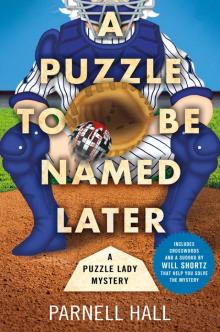 A Puzzle to Be Named Later--A Puzzle Lady Mystery
A Puzzle to Be Named Later--A Puzzle Lady Mystery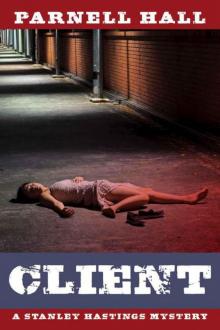 05-Client
05-Client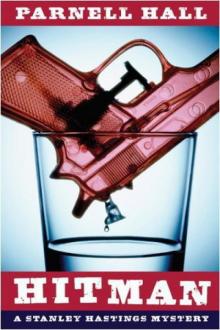 16 Hitman
16 Hitman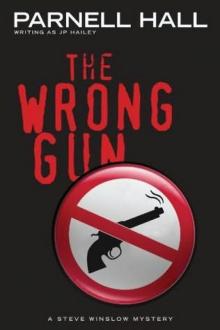 SW05 - The Wrong Gun
SW05 - The Wrong Gun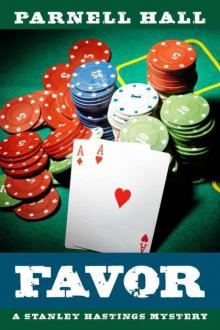 3 Favor
3 Favor Last Puzzle & Testament
Last Puzzle & Testament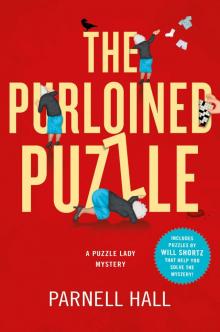 The Purloined Puzzle
The Purloined Puzzle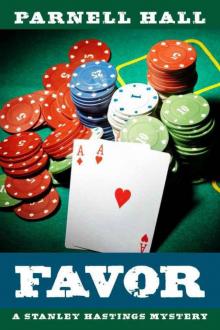 03-Favor
03-Favor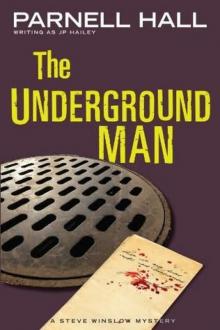 SW03 -The Underground Man
SW03 -The Underground Man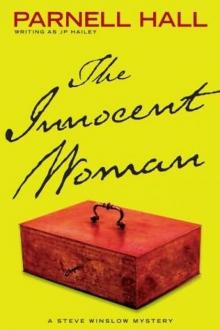 The Innocent Woman sw-6
The Innocent Woman sw-6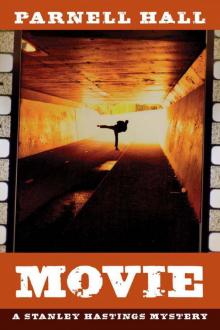 10 Movie
10 Movie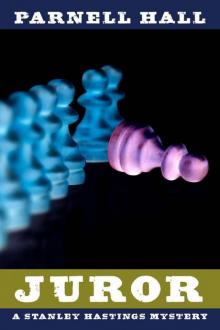 06-Juror
06-Juror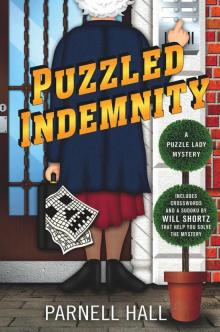 Puzzled Indemnity
Puzzled Indemnity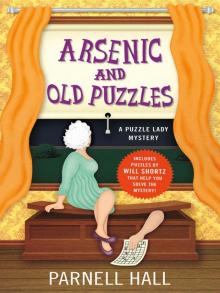 Arsenic and Old Puzzles
Arsenic and Old Puzzles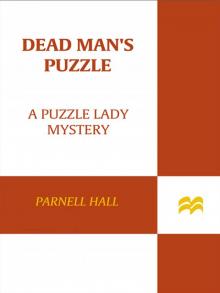 Dead Man's Puzzle
Dead Man's Puzzle Safari
Safari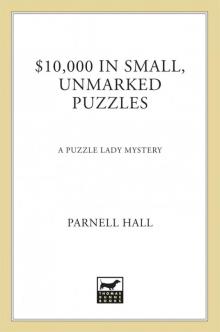 $10,000 in Small, Unmarked Puzzles
$10,000 in Small, Unmarked Puzzles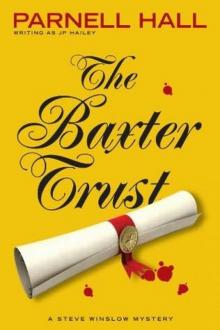 The Baxter Trust sw-1
The Baxter Trust sw-1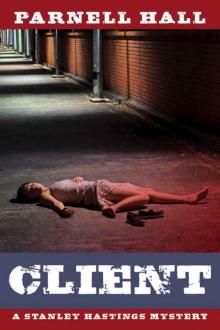 5 Client
5 Client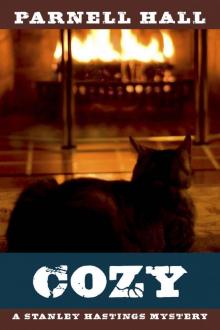 Cozy (Stanley Hastings Mystery, #14)
Cozy (Stanley Hastings Mystery, #14)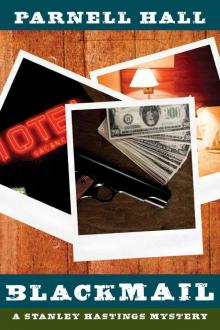 Blackmail
Blackmail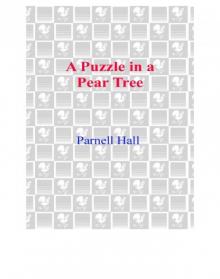 A Puzzle in a Pear Tree
A Puzzle in a Pear Tree A Clue for the Puzzle Lady
A Clue for the Puzzle Lady Clicker Training (Stanley Hastings Mystery, A Short Story)
Clicker Training (Stanley Hastings Mystery, A Short Story)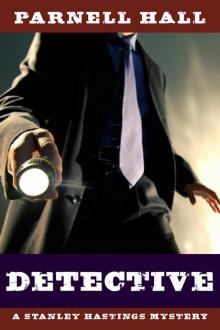 Detective (Stanley Hastings Mystery Book 1)
Detective (Stanley Hastings Mystery Book 1)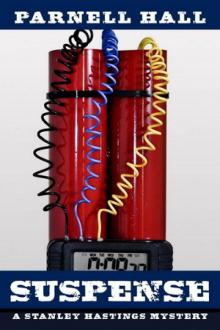 13 Suspense
13 Suspense